| ||||||||||||||||
| ||||||||||||||||
| ||||||||||||||||
The 1878 Invercargill by-election was a by-election during the 6th New Zealand Parliament in the Southland electorate of Invercargill. The by-election occurred following the resignation of MP George Lumsden and was won by Henry Feldwick.
| ||||||||||||||||
| ||||||||||||||||
| ||||||||||||||||
The 1878 Invercargill by-election was a by-election during the 6th New Zealand Parliament in the Southland electorate of Invercargill. The by-election occurred following the resignation of MP George Lumsden and was won by Henry Feldwick.
George Lumsden, who was first elected to represent Invercargill in the 1875 election, resigned in 1878. This triggered the Invercargill by-election, which was held on 17 July 1878. Two independent candidates contested the election, Henry Feldwick and James Walker Bain. Feldwick obtained 51.22% of the votes and was successful. [1]
| Party | Candidate | Votes | % | ±% | |
|---|---|---|---|---|---|
| Independent | George Lumsden | 180 | 53.10 | +53.10 | |
| Independent | John Cuthbertson | 159 | 46.90 | −5.58 | |
| Majority | 21 | 6.19 | |||
| Turnout | 339 | ||||
| Party | Candidate | Votes | % | ±% | |
|---|---|---|---|---|---|
| Independent | Henry Feldwick | 230 | 51.22 | +51.22 | |
| Independent | James Walker Bain | 219 | 48.78 | +48.78 | |
| Majority | 11 | 2.45 | |||
| Turnout | 449 | ||||

Lumsden is a town in Southland, New Zealand. Lying in a gap in the surrounding hills, Lumsden is the location of a major junction on State Highway 6. Lumsden is 81 kilometres north of Invercargill, 106 kilometres south of Queenstown, 59 kilometres west of Gore and 77 kilometres east of Te Anau.
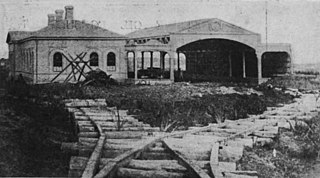
The Kingston Branch was a major railway line in Southland, New Zealand. It formed part of New Zealand's national rail network for over a century: construction began in 1864, Kingston was reached in 1878, and it closed in 1979. For much of its life, it was considered a secondary main line rather than a branch line, and in its earlier years, it was sometimes known as the "Great Northern Railway". Today, the southern portion now forms a part of the Wairio Branch and the northernmost 14 kilometres was used by the Kingston Flyer.
The following lists events that happened during 1908 in New Zealand.
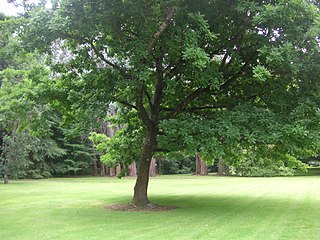
Queens Park is a park in Invercargill, New Zealand, and was part of the original plan when Invercargill was founded in 1856. The park is 200 acres (0.81 km2) in extent. It is just north of the city centre, bounded by Queens Drive to the east, Kelvin Street to the west, Gala Street to the south and Herbert Street to the north. The Gala Street entrance features the Feldwick Gates, built in 1924 and named after John Feldwick, brother of MP Henry Feldwick.

Invercargill is an electorate of the New Zealand Parliament that has existed since 1866. Since the 2020 election, the electorate's representative is Penny Simmonds of the National Party.
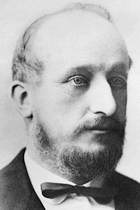
Joseph Hatch was a New Zealand politician who is best remembered for the harvesting of penguins and elephant seals for their oil on the sub-Antarctic Macquarie Island from 1890 to 1919. Around two million penguins were killed over nearly three decades. His company, J. Hatch & Co., was based in Invercargill, New Zealand, and then Hobart, Tasmania, where he is buried.

George Lumsden was a 19th-century New Zealand politician.

Henry Feldwick was a 19th-century member of parliament from the Southland region of New Zealand.
Awarua was a New Zealand parliamentary electorate from 1881 to 1996.
Wallace was a New Zealand parliamentary electorate. It was established in 1858, the first election held in 1859, and existed until 1996. From 1861 to 66, it was represented by two members. In total, there were 18 Members of Parliament from the Wallace electorate.
Mataura was a parliamentary electorate in the Southland Region of New Zealand, from 1866 to 1946.
Hokonui was a parliamentary electorate in the Southland region of New Zealand, from 1881 to 1890.
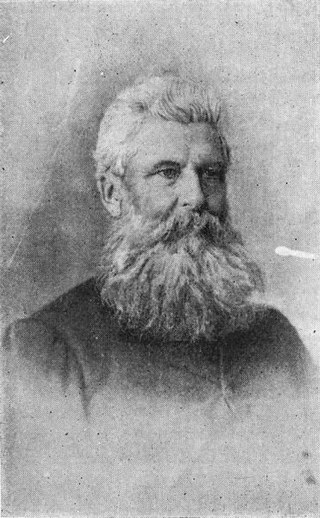
Charles Edward Button was a solicitor, Supreme Court judge, Mayor of Hokitika and later Birkenhead, and an independent conservative Member of Parliament in New Zealand. Born in Tasmania, he came to New Zealand with his wife in 1863. He first lived in Invercargill, then in Westland, and after a brief period in Christchurch, he settled in Auckland. He was an MP for two periods, and when he was first elected to Parliament, he beat his colleague, friend, political opponent, and later Premier Richard Seddon; this was the only election defeat ever suffered by Seddon.

Frederick (Fred) Hobbs was Mayor of Christchurch, New Zealand 1874–1877 for two terms; he was the first mayor who served more than one term. He is credited with having made significant improvements to the drainage system, and thus improving health in the wider Christchurch area. Upon his lobbying, The Christchurch District Drainage Act 1875 was passed, and Hobbs became the first chairman of the Christchurch Drainage Board. The family were tailors and the location of their business premises in the north-east quadrant of Cathedral Square gave the area the name of Hobbs' corner. Fred Hobbs commissioned a new building of permanent materials for the site, which became known as Cathedral Chambers and which stood there from the mid-1880s to the 1970s. The locality changed name to Broadway corner, based on the popular café that occupied the first floor; this name is no longer in use in Christchurch.
The Mayor of Invercargill is the head of the municipal government of Invercargill, New Zealand, and leads the Invercargill City Council. The mayor is directly elected using a First Past the Post electoral system every three years. The current mayor is Nobby Clark. Invercargill also has a deputy mayor that is chosen from the council. There have been 44 mayors so far.
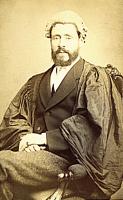
Peter Thomas Finn was a barrister in Victoria, Australia and Invercargill, New Zealand. For a short time, he was a member of the Victorian Legislative Assembly for the electorate of Avoca.

The 1873 Invercargill by-election was a by-election during the 5th New Zealand Parliament in the Southland electorate of Invercargill. The by-election occurred following the resignation of MP William Henderson Calder and was won by John Cuthbertson.

The 1930 Invercargill by-election was a by-election during the 23rd New Zealand Parliament in the Southland electorate of Invercargill. The by-election occurred following the death of Sir Joseph Ward on 8 July 1930. The by-election, which was held on 13 August, was won by the late Prime Minister's second son, Vincent Ward against James Hargest.

The Christchurch mayoral election held on 27 November 1878 was contested by the incumbent mayor, Henry Thomson, and senior Christchurch City Councillor Charles Thomas Ick. The election was won by Ick with a large margin.
The mayoral election took place in Invercargill, New Zealand, on 22 July 1878.